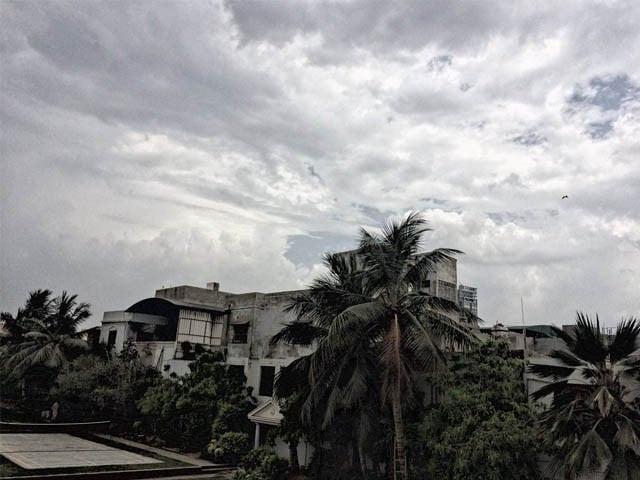PM forms high-level committee for monsoon emergency preparedness
Shehbaz Sharif instructs all relevant institutions to remain on high alert, directs NDMA to support provincial govts

Prime Minister Shehbaz Sharif has established a high-level committee to handle potential emergencies during the upcoming monsoon season.
Chairing a review meeting on Tuesday to address the monsoon forecast and potential emergencies, the prime minister decided to personally supervise the response to any flood situations.
PM Shehbaz emphasised integrating advanced monsoon information into national broadcasts and stressed the regular dissemination of weather updates to farmers. He assured full support to farmers during emergencies and stressed the need for immediate assistance in such situations.
He instructed all relevant institutions to remain on high alert during the monsoon and directed the National Disaster Management Authority (NDMA) to support all provincial governments and related agencies.
The prime minister mandated that advance information about the monsoon be disseminated to people in areas at risk of any emergency. He further stated that farmers and residents near rivers and canals should receive daily updates through the media and other information sources.
Read: PM Shehbaz calls for enhanced trade and connectivity with Tajikistan
During the meeting, the NDMA provided a detailed briefing on the monsoon forecast and the areas at risk. The forum was informed that heavy monsoon rains are expected in the four provinces during the first and second weeks of July.
The forum was told that this year’s monsoon rains in Pakistan will move from the southeast to the north. Rainfall is expected in the Potohar region and the eastern part of Punjab during the first week of July.
In the second week of July, there is a possibility of heavy rains in Rawalpindi, Sargodha, Gujranwala, Lahore, and Faisalabad, with scattered rainfall anticipated in Bahawalpur, Multan, Sahiwal, and Dera Ghazi Khan divisions.
A flood situation is anticipated in the Sutlej, Chenab, and Ravi rivers during the first two weeks of August. Preparations for relocation and emergency response have been completed in the areas surrounding these rivers.
In Sindh, Karachi, Mirpur Khas, Nawabshah, Sukkur, and Hyderabad are expected to experience heavy rains in the second and fourth weeks of July. Additionally, monsoon showers are forecasted for Tharparkar, Badin, Thatta, and Umarkot in the third week of August.
In Khyber Pakhtunkhwa, heavy rains are expected in Hazara, Malakand, Mardan, Peshawar, Kohat, Bannu, and Dera Ismail Khan during July. The monsoon rains in the region are expected to persist until the third week of August.
Also Read: SIFC proposes comprehensive plans to expedite key projects
In Balochistan, heavy rains are likely in the border areas with the Sindh coastal belt during the second and fourth weeks of July and the first two weeks of August. Significant rainfall is also expected in Lasbela, Armada, Khuzdar, Barkhan, Sibi, and Zhob in the third week of August.
Partial rains are expected in July in Gilgit-Baltistan, with large-scale rains anticipated in the first three weeks of August in Skardu, Hunza, Chilas, and Ghizar. Heavy rains and landslides are possible in Azad Kashmir during the first three weeks of July.
The meeting also received updates on preparations for rescue and relief efforts in communities along the banks of the Sutlej and Chenab rivers.
Adequate stocks of boats, tents, drainage pumps, medicines, and other essential items are available. Preparations for the monsoon started in January, with emergency response exercises ongoing since March.
Rescue agencies, Provincial Disaster Management Authorities, Pakistan Army, and NDMA remain on high alert in areas at risk. NDMA has launched a mobile phone application for monsoon alerts, weather conditions, and advance information, which is actively utilized by the public.
A National Monsoon Contingency Plan has been drafted and distributed to relevant institutions and provincial governments to manage any monsoon-related emergencies. The chief secretaries of the four provinces briefed the attendees on their respective action plans to manage the monsoon season and respond to any associated emergencies.



















COMMENTS
Comments are moderated and generally will be posted if they are on-topic and not abusive.
For more information, please see our Comments FAQ